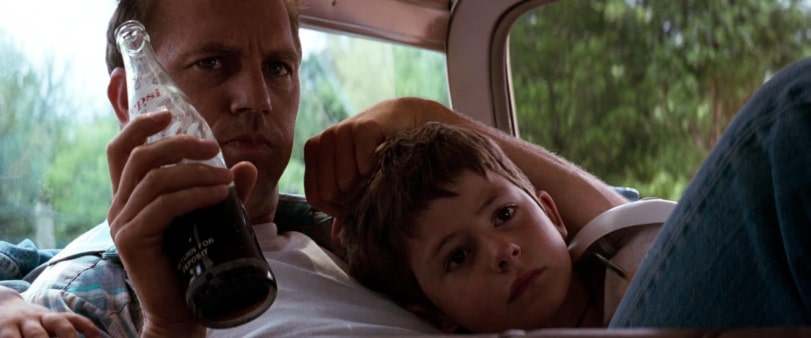
I have never been the biggest Clint Eastwood fan, particularly when it comes to the films he has directed. Eastwood’s style as a filmmaker is classical, intentionally recalling the films of John Ford, Howard Hawks, and William A. Wellman. A Perfect World (1993) is the exception for me. It’s the one Eastwood film I have revisited countless times. Admittedly this has more than a little to do with my father.
The premise is simple: in the mid sixties an escaped convict Butch Haynes (Kevin Costner) forms a paternal relationship with a little boy (T.J. Lowther) he has taken hostage while on the run from the authorities (Laura Dern and Clint Eastwood). A Perfect World features, without a doubt, Costner’s best performance. He carries this film beautifully and with an elusive authenticity. Eastwood’s direction allows Costner’s choices as an actor, his physical gestures, to speak volumes. It’s a rough masculine film yet it is delicate, precise, and often tender.
Jack N. Green, who has photographed more than a dozen of Eastwood’s films, adds a degree of lyricism to the proceedings by way of slow dolly shots and a crisp blue and white color palette. The sequences in the field where Costner lays in the grass, shot, with hundred dollar bills dancing on the wind is particularly beautiful. Green and Eastwood really value character here, forgoing their usual tendency to put testosterone fueled spectacles front and center. Butch, in their hands, is a tough guy for sure, but one made of flesh and blood.
A Perfect World is too often overlooked in assessments of Eastwood’s filmography. I think this film is far more essential to mapping Eastwood’s style than say Unforgiven (1992). A Perfect World sees Eastwood closing in even tighter on human drama, but also slowing the pace, letting moments breath. A lot of Eastwood’s latter masterpieces such as Mystic River (2003) have their origins here.
